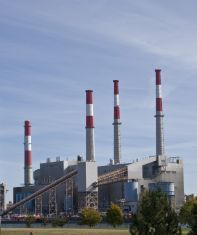That was the scope of opinion given during three days of parliamentary inquiry hearings, in Sydney, Canberra and Melbourne over the past week, into the federal government's carbon pricing scheme.
With the government guaranteed the numbers in parliament to pass its 19 Clean Energy bills by Christmas, a cross-section of MPs have been gathering insights from unions, industry, scientists and the community on what carbon pricing might mean for Australia.
In a nutshell, the government wants a $23-a-tonne fixed price on carbon to start on July 1, 2012, followed by a market-based emissions trading scheme in 2015. The aim is to cut 160 million tonnes of carbon dioxide from the atmosphere by 2020.
The package includes compensation for households and industry, new statutory authorities and extra funding for clean energy projects, as well as a tender process to close down the dirtiest coal-fired power generation.
The nation's chief scientist Professor Ian Chubb told the inquiry much of the debate on the carbon tax had been skewed by vested interests. He urged scientists - many of whom had been vilified and received threatening emails from climate sceptics - to "stand up and be counted".
"The scientific community as a whole has a great deal of responsibility to ensure science is elevated to where it once used to be, and not to be subject to attacks by people with all sorts of agendas," Prof Chubb told the joint select committee inquiry.
He lamented that sceptics had elevated fiction to the level of fact.
"It's raised doubts where doubts should not exist. Science will always have some level of uncertainty, but if you're 95 per cent certain your house is going to burn down, do you do nothing? I don't think so."
Legal experts challenged the idea that Australia was wrong to act ahead of the rest of the world - one of industry's, and the federal opposition's, key arguments against the carbon tax.
Martijn Wilder, from law firm Baker & McKenzie, said it was up to every nation to come up with their own domestic strategies.
"One has to be realistic here. If we wait forever for a global agreement, we'll never start to get emissions reduced," he said.
"In an ideal world it might be best to have a global agreement, but that has its challenges."
But the coal industry was adamant that mines would be made much more uncompetitive by Australia taking action ahead of its trading partners.
Australian Coal Association chairman John Pegler put the cost to the industry at $18 billion over a decade, saying the government had underestimated the compensation that would needed to prop up jobs in the sector.
Taking a slightly different tack, the Business Council said the government had assumed all countries would meet the emission-cut pledges made to the United Nations and had not made any provision to amend or wind back the Australian scheme if that did not happen.
The federal government, the council said, should recognise many of these promises to the UN were not binding and were subject to provisos that countries would make "best endeavours" while continuing to achieve economic growth.
But a number of unions gave evidence that the cost of putting off action until a future global agreement would be much greater than acting now.
Treasury modelling presented to the inquiry shows that Australians' average income is expected to grow by 1.1 per cent annually to 2050 with a price on carbon - less than the forecast growth of 1.2 per cent without an emissions trading scheme.
Asked about the figures, the ACTU's legal work coordinator Joel Fetter said he accepted the modelling because the point of the scheme was "to reduce our emissions, thereby reducing the GDP (gross domestic product)".
He said a two-degree global temperature rise expected by 2100 could result in a high frequency of extreme weather events such as the 2011 Queensland floods, which severely hit Australia's GDP.
"We will clearly have lower income than the income we could generate if we continued to burn dirty coal and we continued with business as usual," Fetter said.
"But we will also have very high emissions, and so at some point in time the planet will catch up with us and then you'll see what happens to GDP."
The 2006 Stern Review on the economics of climate change estimated that, without immediate action, global GDP could drop by at least five per cent.
Australian Manufacturers Workers Union spokesman Tim McCauley put the international debate into an historical context, likening it to the shift from horses to cars.
"The cost of a car was more expensive than a horse," he said.
"Where would you put your bet ... buy up big on horses or betting on cars?"
Hip-pocket issues, which have been a winner for the coalition's battle against the government's scheme, featured in much of the evidence to the inquiry.
Local Government Association chief executive Adrian Beresford-Wylie estimated ratepayers could be forced to fork out up to five per cent more.
The Housing Industry Association forecast a price rise of between 1.2 per cent and 1.4 per cent on the cost of a new home.
But CFMEU boss Tony Maher said the feedback he was getting from workers was that they were happy to bear some cost increases, so long as those who could least afford them - such as pensioners and the low paid - were properly compensated as the government had promised.
"I actually get very proud of members when they tell me that, and that's the only reaction I've ever had."
The joint select committee, which sat for a total of four days, will report to parliament on October 7.





